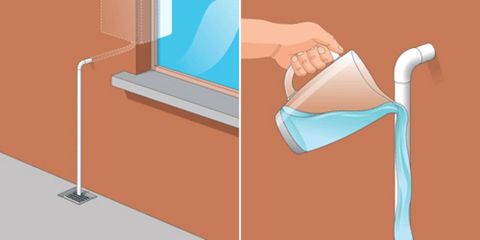Cold weather advice
As temperatures begin to drop and most of us are spending more of our days indoors, it’s important to keep your home safe and warm. Cold weather can bring lots of problems, so use these tips to prepare your home for winter.
Heating and staying warm
-
With most heating systems it is more efficient and effective to keep your heating on at a constant low temperature, rather than allowing your home to cool down and then heating your home up.
- Heat the rooms you live in most at 21ºC or 70ºF during the day. If you can’t heat all your rooms make sure you keep at least the one you’ll be in most of the time. Use the timer to switch it on before you get up in the morning or return home during the day.
- At night try to keep your bedroom above 18ºC or 65ºC. If you use an electric blanket keep it maintained and use it correctly. Never use an electric blanket and a hot water bottle at the same time.
-
Using a pre-payment meter? Make sure you have enough credit before the weather turns colder.
-
Move furniture away from radiators to allow heat to circulate freely.
-
Keep outside doors shut and report any excessive draughts.

Condensate pipes
- Just as we can seize up if we get too cold, our home can too, especially if no one is going to be there. If you are going to leave your home unoccupied during cold weather please talk to us for advice on what you need to do.
- If your property has a thin condensate pipe from the boiler it can freeze if the weather is cold causing the boiler to shut down. If this happens give us a call. However, you may be able to solve this if the pipe is at ground level. You can pour tepid water over the frozen pipe. Don’t use boiling water. Gradually this will thaw the inside allowing the pipe to clear. Please call us first if you are unsure what to do.
Health and general advice
- It helps if you have regular hot drinks and food during the day.
- It is important to keep active too. Try to move around at least once an hour. Babies, older people and those with certain health conditions children are at greater risk of hypothermia. Learn to recognise the signs. We shiver when we are cold. But if you can’t stop shivering when you try to, hypothermia may be setting in.
-
The easiest and cheapest thing to do is to put on extra layers of clothing. Lots of thin layers are more useful than one of two thick ones. Put on extra layers including a hat if you go out. Check that children wrap up well before going out.
-
Cold weather can affect your health, especially if you have an existing condition or are frail. If you’ve had a flu jab that should help set you up. If you’re entitled to one, take it up.
-
Don’t wait for repeat prescriptions to run out: order in advance. Snow and cold weather could affect supply or your ability to collect your prescription.
-
Make sure your mobile phone is topped up with credit before any bad weather event.
-
Be aware of where the grit bins are located on your street.
-
Watch or listen to weather reports for the latest bad weather warnings. Stay at home in really bad weather and re-arrange non-urgent appointments.
-
Wear adequate, warm clothing should you need to go outside in bad weather. Wrap up in layers – and don’t forget your hat, scarf and gloves.
-
Give your neighbours your phone number in case of emergencies in bad weather. Look out for each other.
Winter checks
A few winter checks to carry out in your home ahead of the winter weather.
-
Check taps are not dripping (including any outside taps)
-
Know where your stopcock valve is, for turning off your water
-
Know how to turn off your gas
-
Know how to turn off your power
-
Check door locks are working and maintained
-
Keep a torch (or two!) handy in case of power cuts